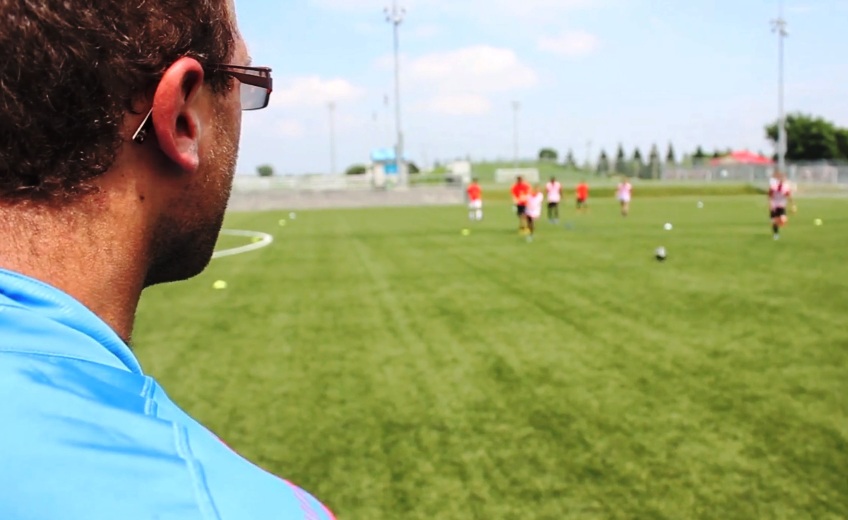

Thinking the game
Watching the play can end being overwhelming. Everything is moving simultaneously and so much is happening, it is difficult to remember or even to see specific things as the game rolls out. It truly feels an ongoing avalanche of information.
Through his/her career, a coach can meet heaps of colleague coaches, analysts, professors who will remark different things in the play, going from broaden to detailed observation points. Nevertheless, an approach we often associate to Mourinho, is to consider “the whole is the most important”. Most of the time, coaches adopting this approach will refer to the play.
Even if players fail or miss, even if you can’t recognize your shape at all time, even if you detect “wrong habits” or “ball watchers”, the play goes on and you still can observe global things of the play, such as tendencies and collective behaviours. That’s the big picture through which you’ll appreciate fluency, space, rhythm, and the potentialities of your teams.
The interesting thing about watching the play through “the big picture” googles is you keep the vision of building upon what works well and embed the details of actions.
This empowers players and lead them to act in respect with ideas. At first, you’ll refer to general things players will understand and apply without thinking too much, but rather feel it. The last thing a player needs when playing is to thing of details about himself. You can therefore suggest to pass the ball faster, or to run shorter distances. Yet this will condition the play and make a difference.
Further on, you’ll be able to shape the circumstances in which the team does things, especially the ones you can picture in your head or describe. Think of when your midfielders can reach your strikers and “follow the play to strike”. You can think of all the movements everybody should do, how and when. However, your players cannot read your mind. What you can do is manipulate the conditions to allow players to operate an idea. In that case, the wider the pitch, the wider your midfielders can go, and consequently bigger will be the gaps between opponents. This is how you could reach more pocket passes without prescribing them, and operate the idea of reaching strikers.
Playing with such parameters is when things get more exciting. You’ll be able to monitor the idea you are after, and introduce things players won’t do for themselves, even under favoring circumstances. Once you reach success, you can ask yourself “what would happen under different circumstances?” For instance, less space between opponents, but more strikers who can receive the ball. It gets more abstract at times, but surely richer. In all cases, you are sure to work according your idea as well as what players are effectively able to do in the play. At the end, you still strive makes players feel successful through the play.
It finally allows you to create coaching opportunities. During Federation Licenses courses, we can hear tutors insist on “coaching what we see”, as opposed to “settling up what we imagine.” Developing abstract thinking and your ability to picture – realistically – what players are able to do will help you coach solutions that are significative to them, at the right moment.
This is a long run. To develop everything that was mentioned requires thinking, trying, failing, and repeating. However, this is how you can get as realistic to the game as possible, since the play embeds everything at a time. But more importantly, this is how you lead the play, rather and to teleguide it.
Get to know more about Soccer HUB!
Follow us on Facebook!
Categories
Latest Courses
-
9 Lessons
-
1 Lesson
-
6 Lessons
You May Also Like
-
-
November 16, 2025
-
-
November 7, 2025
-
-
November 6, 2025



